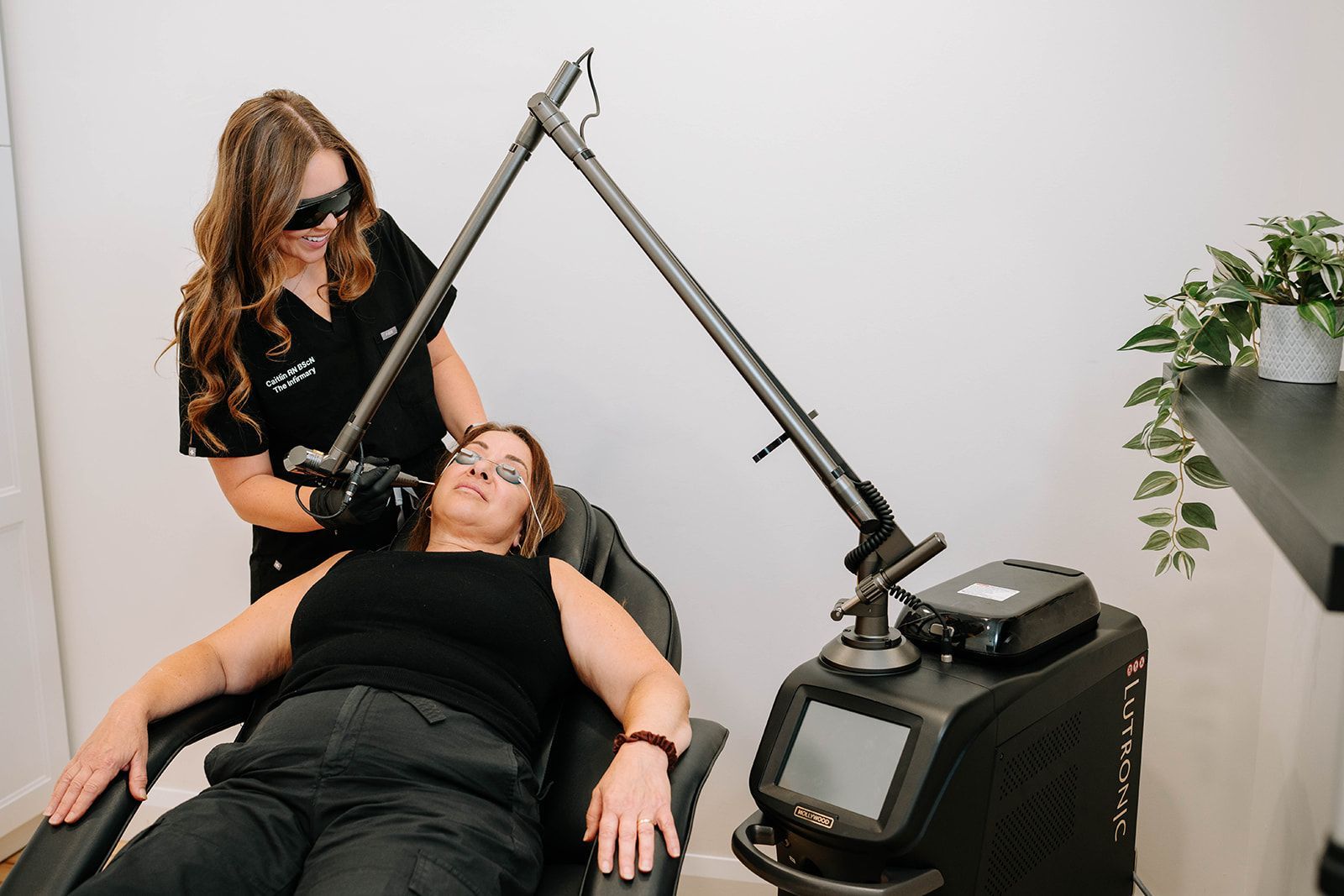acne.
WHAT IS ACNE
Acne is one of the most common skin concerns, affecting people of all ages — not just teenagers. It develops when pores become clogged with oil, dead skin cells, and bacteria, leading to inflammation and the appearance of blackheads, whiteheads, papules, or cysts. Hormonal changes, stress, diet, and certain skincare products can also contribute to breakouts or make them more persistent.
Beyond the visible blemishes, acne can impact skin texture, confidence, and even cause scarring if left untreated. Because every case of acne is different, effective treatment requires an individualized approach that calms inflammation, clears congestion, and supports long-term skin balance.
How We Treat
Following a detailed consultation, we customize your treatment plan using one — or a strategic combination — of the therapies below, tailored to your unique skin needs:
- Vivier Chemical Peel
- Jessner Chemical Peel
- Blue Light Therapy (Healite)
- Laser Carbon Peel (Hollywood Spectra)
- Cryotherapy (Glacial Rx)
- Fractional Skin Resurfacing (LaseMD Ultra)
- Targeted Spot Treatment (Clarity II)
- Kenolog Injections
- Prescription Medications (* in consultation with our Nurse Practitioner)
Compatible Products
To support and extend your in-clinic results, we recommend the following medical-grade products as part of your at-home routine:
- Vivier Acne System
- Vivier Ultra Purifying Clay Mask
- SPF
- Zo Skin Health Complexion Renewal Pads
- Vivier Retinol
- Vivier Acne Complex
- Vivier Medicated Wash
- Vivier Vitamin C Scrub
- Hale Derma
Frequently Asked Questions
1. What causes acne?
Acne occurs when oil (sebum) and dead skin cells block hair follicles, creating an environment where bacteria can thrive. Hormonal fluctuations, stress, and genetics can all trigger or worsen breakouts. Using heavy skincare products or makeup that clog pores may also contribute to flare-ups.
2. Can acne be prevented?
While some causes of acne — like hormones and genetics — can’t be prevented, maintaining a consistent skincare routine can help minimize flare-ups. Gentle cleansing, exfoliation, and avoiding pore-clogging products are key. Treatments that reduce oil production, inflammation, and bacteria — such as blue light therapy, chemical peels, or Glacial Cryotherapy — can also help keep the skin clear and balanced.
3. Can acne scars be improved?
Yes. Once active acne is under control, treatments like resurfacing lasers, microneedling, or chemical peels can help smooth uneven texture and fade pigmentation left behind by breakouts. Combining in-clinic procedures with targeted skincare ensures the best long-term results.



